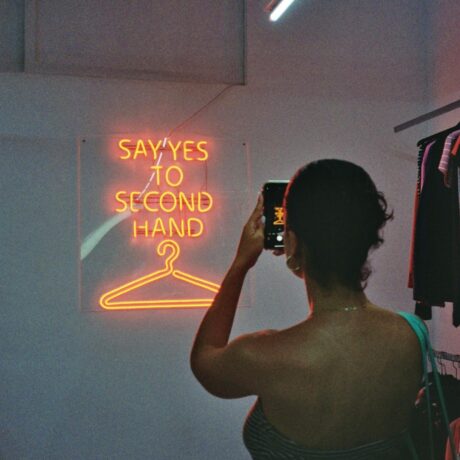The Case for Shared Responsibility During Black Friday
This is a guest blog written by Taylor Brydges, UTS Institute for Sustainable Futures and Mary Hanlon, Okanagan College.
Amid Black Friday buzz and the allure of tempting discounts, the hunt for the latest fashion trends at ever-lower prices intensifies, especially with the upcoming holiday season and escalating living costs. As consumers eagerly navigate the sea of promotions, it’s essential to pause before clicking “Buy Now” and consider the origin of the clothing. As the world’s second-largest producer of fashion and apparel products, dominating 84% of the country’s total exports, the “Made in Bangladesh” label will likely feature prominently on the clothes on offer.
While the excitement of Black Friday builds, the streets of Bangladesh echo with a different narrative, as thousands of garment workers have been fervently rallying for an overdue increase in their legal minimum wage. These workers, without wage increases since 2018, have been calling for an increase to the minimum wage, challenging the concession of 12,500 taka (USD 113) the government has offered.
Companies producing fashion and apparel products in Bangladesh have come under pressure for failing to support workers in this struggle, as labour organisers are calling on brands to step up, where the government is seen to have failed. Even as some brands have called on the government to support the living wage, pressures on brands are mounting.
As tensions continue to grow, it is likely that so will the numerous articles and campaigns offering consumers quick tips on how to navigate their purchasing practices come Black Friday. Some might name and shame the brands, while others might rank them based on their engagement with policies and programs that support social and environmental sustainability more broadly.
While consumers can indeed play a pivotal role in shaping market trends, driving brands towards voluntary so-called compliance initiatives, we argue that the core of the change required to support worker rights rests not with consumers alone but also with governments and the broader fashion industry, promoting stringent labour regulations and industry-wide commitments.
As workers bargain for better wages and consumers bargain for better discounts, a collective responsibility emerges–one which requires consumers, the fashion industry, and Western governments alike to champion worker safety, responsible fashion, and ethical apparel production in Bangladesh and beyond.
In a recent article published in the Canadian Political Science Review, we utilise the concept of ‘fashion diplomacy,’ advocating its potential as a transformative tool for labour rights and responsible fashion practices. We argue that Western governments must synchronise their domestic and international policies and address systemic challenges within the global fashion industry.
Zooming in on countries importing fashion and apparel products from Bangladesh, for example, Bangladesh, we underscore a shared responsibility between governments and businesses that claim to support labour rights. While consumer pressure on brands aligns with an eagerness to aid workers, we argue that government policies are pivotal in steering the systemic change the industry needs.
While we see brands as crucial stakeholders, government mandates to support workers through safe conditions, fair wages, and ethical practices across supply chains are essential. Instead of shifting costs onto workers, brands must be held accountable for supporting more sustainable and equitable labour practices. The fight for a living wage is an ethical imperative that only propels the fashion industry toward prioritising worker well-being and ecosystem sustainability.
Consumers can support this transition and evolve their concerns into actions by educating themselves about garment worker challenges and the environmental impacts of the fashion industry. Consumers can advocate on behalf of garment workers by vocalising support for fair labour practices and responsible fashion–especially where worker voices have been systematically silenced and ignored.
This collective call to action transcends ethical shopping—it’s a call for consumers to raise their voices, demand systemic change and hold governments and the fashion industry accountable for worker well-being and industry sustainability.
Take action!
Use our template to email a brand and ask #WhoMadeMyClothes?
Join the OR Foundation and call on brands to #SpeakVolumes about their production volumes
Header photo by Bruno Kelzer on Unsplash








